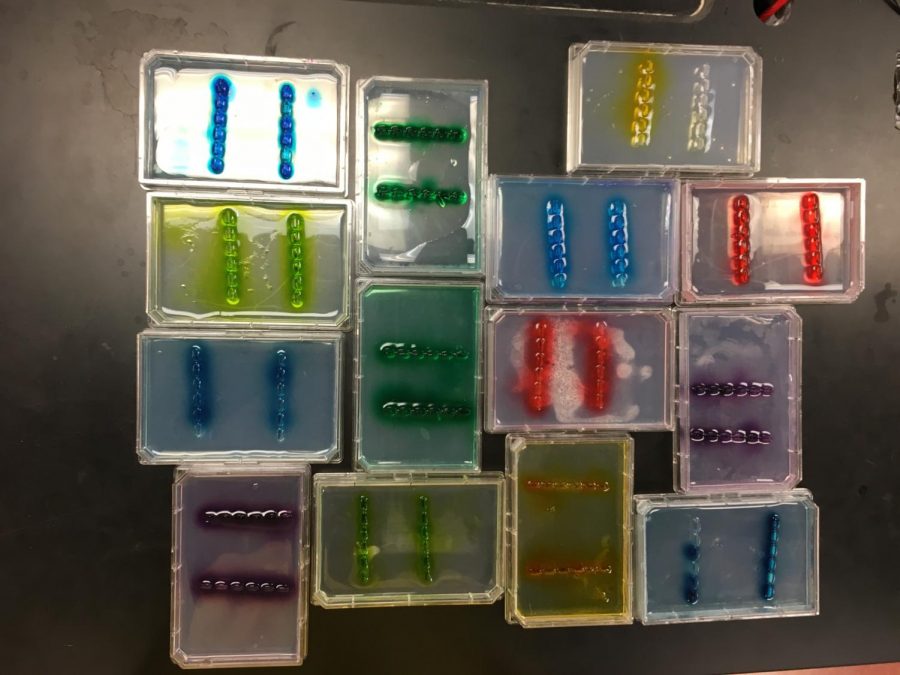Oakdale Students Use BioTech Experiments to Investigate Opioid Addiction
The students put test subjects’ DNA into gels which they later ran through electricity to determine if opioid addiction changes the DNA makeup.
November 11, 2019
Ms. Jennifer Morganthaler, a biology teacher at Oakdale High School, decided to allow her students to investigate opioid inheritance passed down through genetics by using BioTech experiments.
The students studied what opiods are and how it affects the brain. Opioids bind the receptors in the brain resulting in the release of dopamine, causing the feeling of euphoria. Severe pain can be treated using opioids; however, there are serious side effects such as opioid dependence otherwise known as addiction.
By using biotechnology for the experiments, Ms. Morganthaler hopes that the students can gain knowledge and experience of the equipment for the future when students go into STEM career pathways in college and work.
When asked what she hopes the students gain from the lab, Ms. Morganthaler replies, “They get the experience with biotechnology, its something that’s not in the biology curriculum, we don’t have to let them do these labs.”
She hopes that by doing this experiment and using the new equipment that it makes the activity exciting “…and the cutting edge part of biology.”
The first activity the students tackled was to review opioid dependency and how they use their knowledge of the genetic aspect of addiction in the medical field. Important topics that were studied and discussed were family history and past drug experience.
The students conversed about how they use opioid dependence tools to see how likely it will be for a person to become addicted. They ran agarose gel through a process called electrophoresis, an experiment that shows the separation of charged particles when run through an electric current.
The students then put small amounts of the sample of genetics– some with opioid dependence and some without. When run through electricity, it was discovered that the samples of opioid dependence and those without varied in their genetic structure.
Electrophoresis is used for “paternity testing, forensics, and actually for evidence in evolution,” according to Ms. Morganthaler.
Julia Schillaci, a Sophomore at Oakdale, was one of the students in biology with Ms. Morgenthaler doing the opioid lab activity. Excited to do something “out of the ordinary,” Schillaci believes that the: “…different things you can do in biology and how you can do biology as a career” were two aspects Ms. Morganthaler hoped the students got out of the lab.
After completing the lab, Ms. Morganthaler’s class have gained knowledge and experience using biotechnology. The students have been introduced to a frequently used process in many different careers called Electrophoresis. By the end of the lab, Ms Morganthaler provided for the students what she was originally hoping for: “To understand what this biotechnology is and how it works.”





























